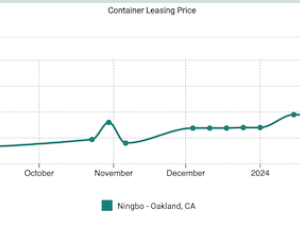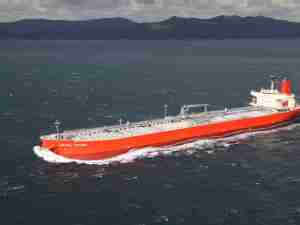Flooding in Australia compounded by weather related problems in Colombia, South Africa, Russia and Indonesia have all disrupted coal shipments at a time when the dry bulk market is already struggling to absorb growing vessel deliveries ordered before economic turmoil in 2008.
The index, which gauges the cost of shipping commodities including iron ore, cement, grain, coal and fertiliser, fell 3.89 percent, or 48 points, to 1,186 points and was at its lowest since Feb. 3, 2009.
"The picture is still one of overall decline with the sharpest falls having so far been experienced in the capesize sector," said Derek Langston, a senior director at SSY Consultancy and Research.
"However, panamax earnings are coming under pressure in the Atlantic as well as in the Pacific."
The Baltic's capesize index fell 3.04 percent, with average daily earnings weaker at $6,705 falling for an eleventh session and falling below the $7,000 a day level for the first time since Dec. 11, 2008. Capesizes typically haul 150,000 tonne cargoes such as iron ore and coal.
Growing Risks
Brokers said due to disruptions in Asia more panamax vessels were journeying from the Pacific to the Atlantic in search of business.
"With the build up of tonnage attracted into the Atlantic by the prospect of higher earnings than they would get in the pacific this is leading to an adjustment in Atlantic panamax earnings," SSY's Langston said.
Analysts said news that South Korean second biggest dry bulk carrier Korea Line Corp had filed for receivership was also weighing on already weak sentiment.
"We currently estimate supply growth of approximately 15 percent in each of 2011 and 2012, respectively, which we believe will lead to a relatively weak operating environment over the near-to-intermediate term," Wells Fargo Securities said.
"While we believe dry bulk stocks are pricing in some of this weakness, we believe escalating counterparty and headline risk likely overshadow any value recognition over the near-term."
While there are indications of some vessel cancellations and delays, analysts expect deliveries to gather pace between 2011 and 2012 putting further pressure on rates.
"BIMCO assess that freight rates for capesize vessels is likely to remain depressed in coming months at least," said Peter Sand, shipping analyst with ship association BIMCO. "Supply side pressure being the dominant factor in the supply-demand equation." (Reuters)









